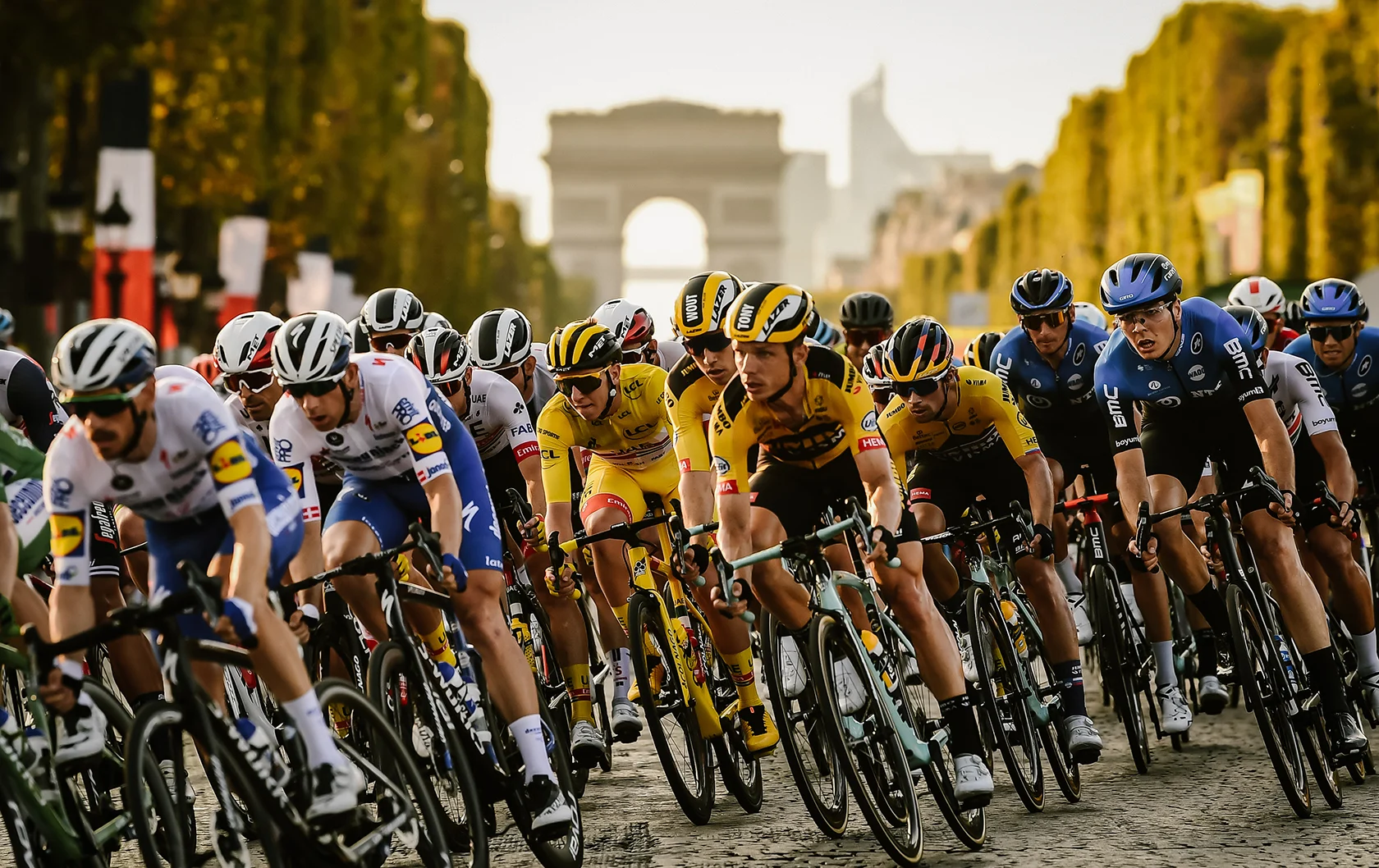Tour de France is starting soon. This cycling competition is considered one of the most challenging competitions in the world. The racing takes place for 21 consecutive days with competitors cycling various distances across France – upwards of 200km each day. Yes – up and down steep hills. The competition is fierce, and not just between teams but also internally between teammates – being selected for the team is a trial in and of itself. Those who make the team must then attend training camps for months on end, away from family and friends, going through grueling exercises. The temptation to use performance-enhancing drugs is always there. One of the most famous cyclists, Lance Armstrong, was accused of cheating in various ways to win this competition. And he is not the only one. In Tour de France, nothing is held back.
Tour de France creates the fiercest and most unforgiving competitive atmosphere where the smallest details matter and victory is only achieved through a multitude of small actions over a long time. These circumstances are equivalent to running a company on the open market. The key to victory lies in the preparation and execution.
It has often been said that repeating the same thing and expecting a different outcome is the definition of insanity. This applies both to elite athletes and companies. If the goal is to excel at a competition such as the Tour de France, the team and athletes must find a way to create a competitive advantage in some way or another. This could be achieved by designing a training regiment that is superior to the rest of the competition. Just as Henry Ford once said: “Success doesn’t come from imitation”. But the most important factor to consider is the strengths and weaknesses of each team, and how to best utilise those to your advantage.
The companies that achieve unparalleled success do not do so by following the competition, but rather by making sure they are uniquely situated to take the lead. A good example of this is Uber which was founded in 2010. Uber is a web-based application that connects people to drivers to get rides or food deliveries among other things. The company uses a similar infrastructure that a lot of Icelandic people are familiar with from Airbnb. Uber has faced many hindrances caused by competition and the government. This has cost the company an immense amount of money and delayed its development. But now the service is available in 70 countries around the world, there are 93 million registered customers and about 3.5 million drivers. Uber is a unique service that removes the dread of not knowing what a taxi fare will cost until you reach the destination. When you order an Uber the fare price is calculated and you pay in advance. Before you step in the car you know the make and model of the car that will pick you up, what the driver’s name is, and what rating he has received from previous customers as well as the estimated arrival time. All of this information is then accessible at any point during or after the ride. If you, which for example happened to me, forget something in your Uber in Paris retrieving it is simple since you have information on the car and driver, and the whole ride is logged with Uber. This provides additional comfort and security.
It bears to mention that the road to novelty is not without challenges. It requires courage to challenge accepted norms and to withstand criticism from doubters while gaining and maintaining the trust of investors. But to achieve exceptional success that is the road you have to take. The founder of Uber, Travis Kalanick, approaches problems with the same mentality as those who compete in the most difficult sports event in the world. You have to go above and beyond to achieve success beyond the norm, and most importantly, you can’t give up or as Travis Kalanick said “The only way to succeed is to just simply not give up”. This also applies to the Tour de France. After all the preparation, training, and planning it’s the resilience in the final sprint which matters. That’s what separates the winners and losers.
